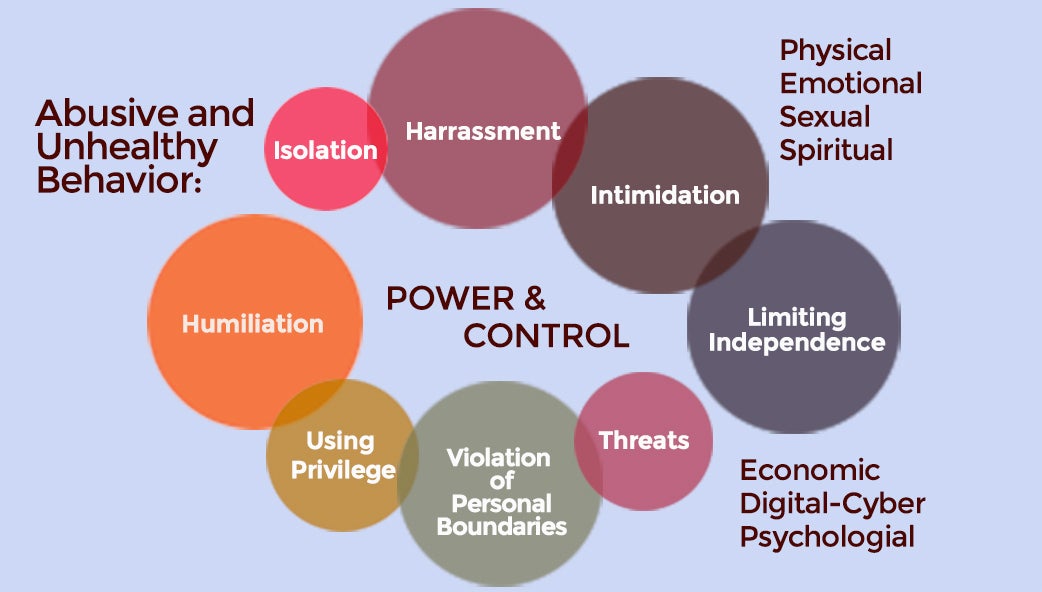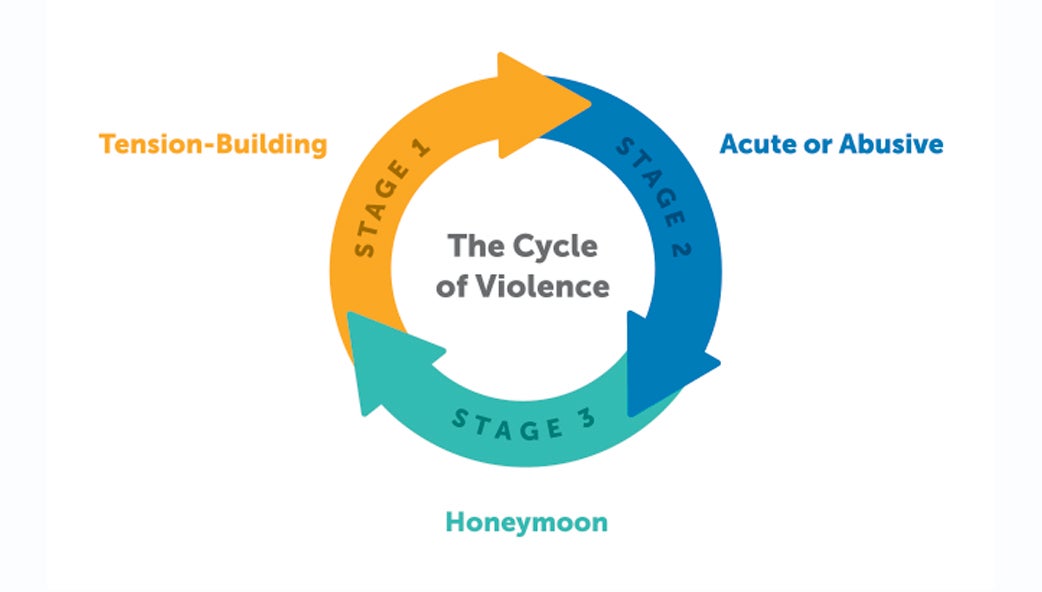CARE is open and offering confidential support for students, faculty, and staff.
To schedule an appointment with an advocate, please click the button below.
Unhealthy and Abusive Relationships
Relationships exist in every part of our lives. Whether it's a short- or long-term relationship, or hooking up with someone for a long period of time, any behavior or action used to harm, control or intimidate a partner or previous partner can be defined as intimate partner violence (dating violence, relationship violence and domestic violence are terms that are also used). These behaviors can include grabbing, pushing, pinching, yelling, making demeaning comments, hitting, strangulation of the neck, not letting you spend time with friends or family, or making you feel guilty for not spending time with your partner.
Signs of abusive behavior may include:
- Digital/Cyber: Demands access to emails, social media accounts or phone/text messages.
- Economic: Makes, or attempts to make, someone financially dependent by controlling financial resources or forbidding class/work attendance.
- Emotional Abuse: Undermines another’s self-worth and self-esteem. Can include constant criticism about body image, diminishing one’s abilities, name-calling and damaging interpersonal relationships.
- Physical: Hitting, slapping, shoving, grabbing, pinching, biting and/or hair pulling. Also includes the denial of medical care and forced drug/alcohol use.
- Psychological Abuse: Induces fear with intimidation. Can include threats of physical harm to self, others, pets and property, as well as forced isolation from friends, clubs/organizations, school and work.
- Sexual Abuse: Coercion, or attempted coercion; sexual contact/behavior without consent. Can include marital rape, attacks on sexual body parts and sexually demeaning behavior.
- Threats: Words, gestures or weapons that express the intent of causing injury or disability.
The Cycle of Violence
The Cycle of Violence is a pattern often experienced in abusive relationships — the honeymoon, tension-building and acute or abusive phases repeating over and over. Domestic violence is a pattern of abuse in an intimate relationship that escalates over time. The Cycle of Violence is intergenerational. It not only repeats itself in an abusive relationship, it also repeats itself by emerging later in the relationships of people who experienced and witnessed violence in the home as they grew up.If you or someone you know is experiencing sexual violence, contact a CARE advocate. CARE advocates are available Monday–Friday, 8:30am–4:30pm.
Phone: (951) 827-6225
Email: advocate@ucr.edu

